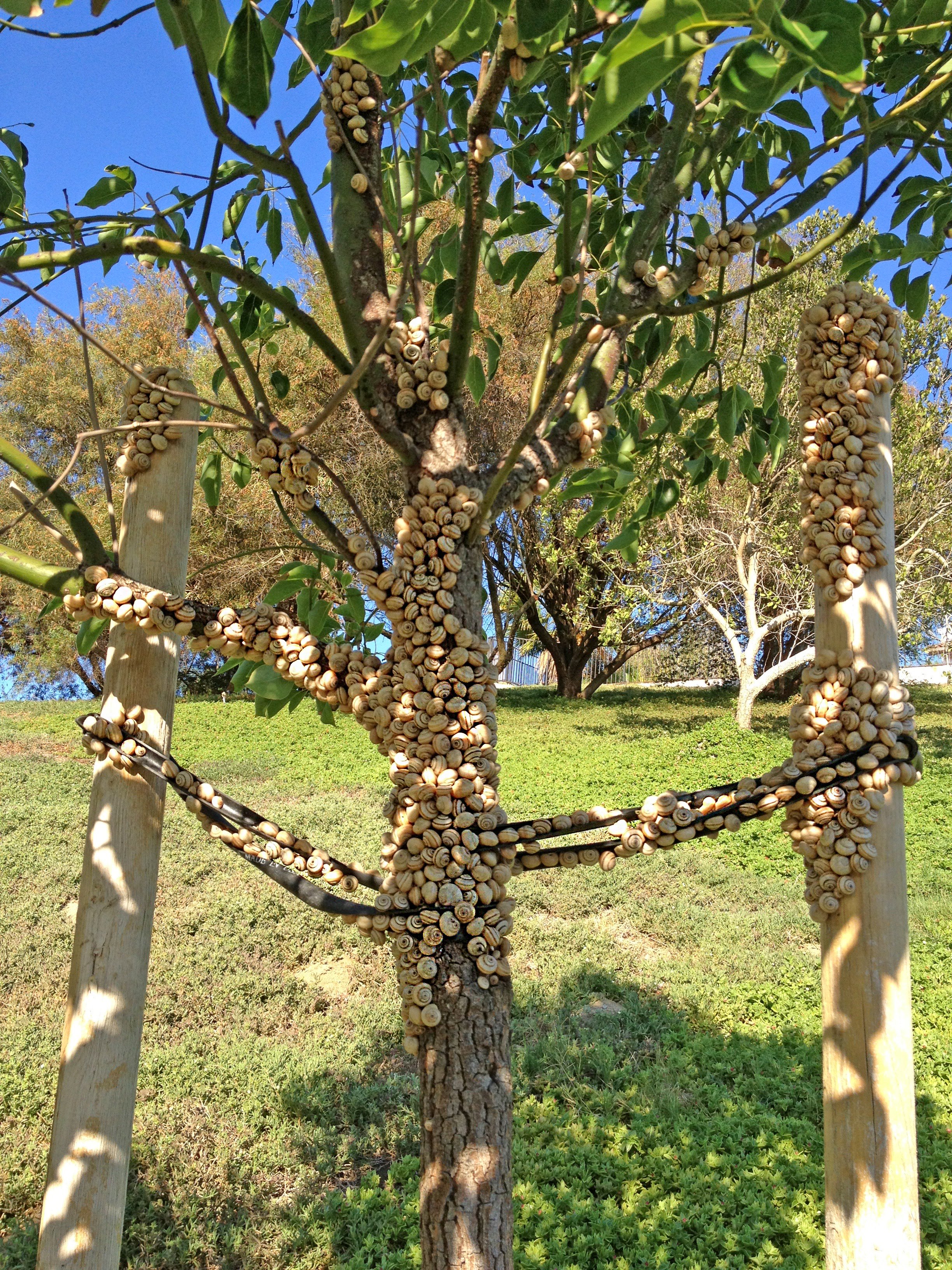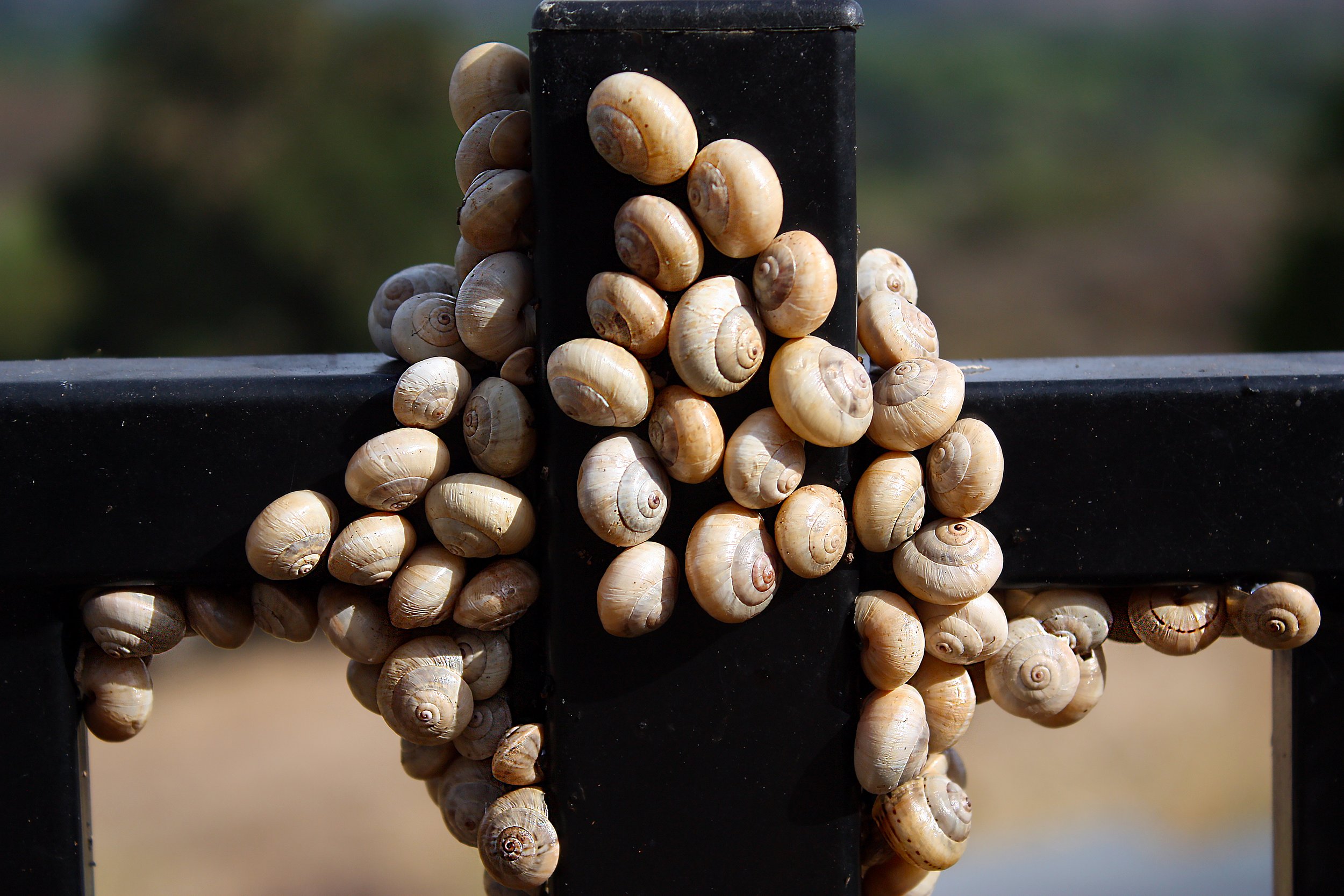SSF Community News
Rules Change Notice
The reason for the Rules changes are twofold:
Our association attorney drafted new Election Rules based on new California laws allowing for voting by acclamation and electronic voting.
Election Rule change 2025
Sonata Proposed Election Rules 2025Our attorney also drafted an updated Parking Rule concerning long term parking and storage of cars on driveways and common areas, which is prohibited. The Board has incorporated this updated Parking Rule and several existing guidelines regarding fencing, painting, and pets into our updated Rules & Regulations, which will be distributed soon, along with our Annual Policy Statement and Budget.
Parking Rule change 2025
Invasive Snails
Have you seen small (12-14 mm in diameter) white snails w/brown whorls stuck to tree and shrub trunks? These are not the usual brown snails we’ve tolerated for years.
The White Garden Snail, Theba pisana, is a nuisance pest from Sicily which first reached CA at La Jolla in 1914. It has been eradicated twice since then, but is back in force since it likes to estivate on freight. It estivates (passes summer or the dry season in a dormant state) by sealing itself with a mucous plug to a trunk, limb, stalk or even rubber and plastic tree ties.
To remove estivating snails:
Use a sturdy stick or rod to scrape them off.
The part left on your plant will wash off when the rains start.
Put newspaper below plant to catch “scraped off” snails. Fold up and place in non-recycled garbage.
DO NOT try to remove by hand because the shells crush easily, and can give one a nasty, easily infected cut.
The snail is capable of explosive reproduction rates which start with the first rains.
Each lays 50 – 225 eggs at a depth of two inches in soil.
Eggs hatch in 20 days.
Average snail lives 3-4 years.
The best way to get rid of them is scraping in the summer, and hand picking once the rains start.
Hand picking and poisoning only work when the snails are not estivating.
Poisonous sprays and baits you have used for years can work.
The ingredients in the 2 most commonly used ones are metaldehyde and iron phosphate.
Baits are flavored to make them attractive to snails and slugs, hence their attraction to dogs and cats.
Some are given a bitter taste to make them unattractive to pets.
Snail poisons are toxic to dogs and cats if they ingest them, so be careful how you use them.
For extensive details on the various management methods for the white garden snail, including habitat modification, biological control, hand-picking, and chemical control, read or download a PDF the full ACANR article at here.
References: https://ucanr.edu/blogs/blogcore/postdetail.cfm?postnum=43416



